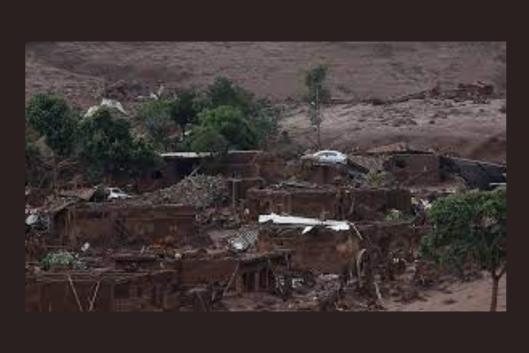On November 5th, one of the largest environmental disasters in the history of Brazil occurred. Two dams operated by mining company Samarco burst in the state of Minas Gerais, dumping sludge with the company's toxic waste in an area where hundreds of families lived. The disaster killed dozens of people, destroyed hundreds of homes, and destroyed the life of one of Brazil's major rivers, the “Río Doce.” This in turn has affected the water supply of hundreds of thousands of people and the livelihoods of thousands of peasants and fisherfolk, has caused the contamination of mangrove forests and has led to the loss of tourism in the region. The affected communities, along with social movements, environmentalists, students and others, have mobilized in recent weeks to demand justice. They are demanding, among other things, that the owners of Samarco, a subsidiary of Vale and BHP Billiton, be held accountable for the damage caused. The disaster is forcing Brazil – and indeed the whole world – to reflect deeply on the urgent need to reverse neoliberal adjustment policies and processes, which are imposed by multilateral agencies and countries where major corporations – including mining companies – are located. Policies benefiting free market and private interests have led to the relaxation of environmental and mining legislation, in order to facilitate extractive activities. With their laxness in the permits and regulatory processes, further weakened by mining companies' financing of electoral campaigns, Brazil and the rest of the world are at the will of large corporations, whose public discourse of “best practices” contradicts the reality that leads to tragedies like this one.
Read the joint international statement by People Affected by Vale here:https://atingidospelavale.wordpress.com/
And an account, in Portuguese, by the Movement of Dam-Affected People of the impacts felt by women here:
http://www.mabnacional.org.br/noticia/lama-da-samarco-valebhp-atinge-vida-das-mulheres
